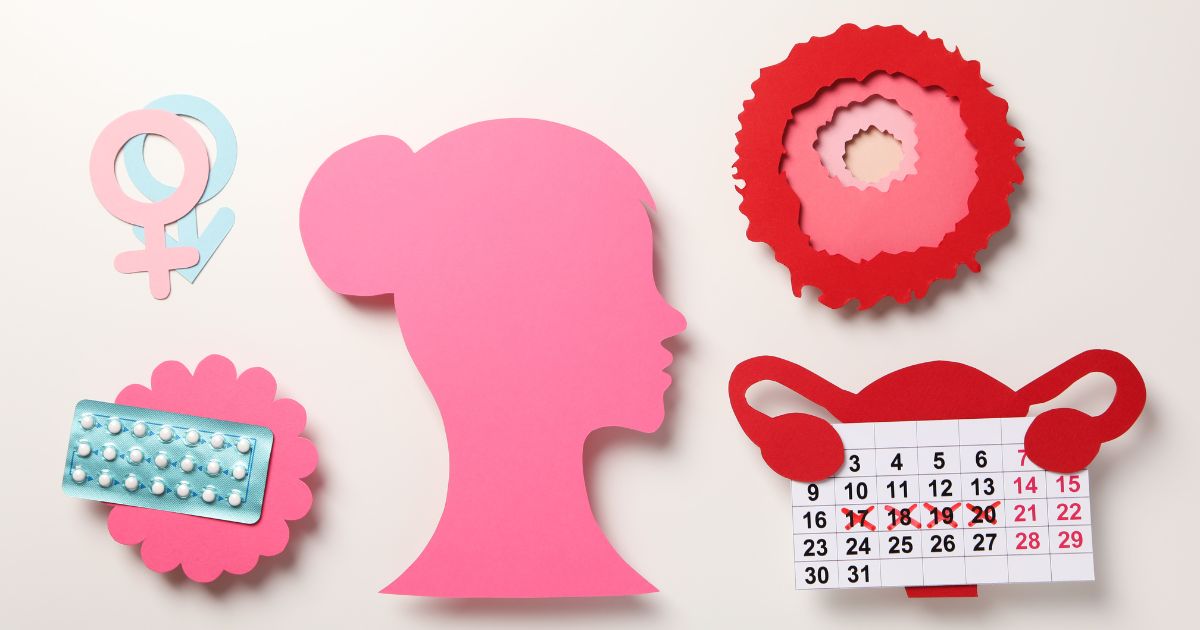
Maintaining a regular menstrual cycle is essential for overall health and well-being. Menstrual irregularities can arise from hormonal imbalances, lifestyle changes, stress, or underlying medical conditions. While medical intervention is sometimes necessary, natural remedies can often help regulate your cycle. If you’re looking for guidance from the Best Multispeciality Hospital in West Delhi, learn how to support menstrual health practically and naturally.
The Power of Diet: Foods to Boost Menstrual Health
A balanced diet plays a crucial role in regulating your menstrual cycle. Certain foods are known for their ability to support hormonal balance and improve menstrual health:
- Papaya: Rich in carotene, papaya stimulates estrogen production, which helps induce menstruation and regulate your cycle.
- Turmeric: Known for its anti-inflammatory properties, turmeric can improve blood flow and alleviate menstrual discomfort.
- Iron-Rich Foods: Include spinach, lentils, and lean meats to combat anemia, a common cause of irregular periods.
- Healthy Fats: Avocados, nuts, and seeds provide essential fatty acids that balance hormones naturally.
- Hydration: Drink plenty of water to reduce bloating and support smooth hormonal functioning.
For personalized dietary advice, consult the expert gynecologists at a Trusted Gynecologist Hospital, such as Aastha Hospital, known for its comprehensive women’s healthcare services.
Herbs and Spices: Nature’s Menstrual Regulators
Herbs and spices have been used for centuries to address menstrual concerns. Some of the most effective options include:
- Ginger: A warm cup of ginger tea can help reduce inflammation and stimulate menstrual flow.
- Cinnamon: This spice is not just a flavor enhancer but also a natural regulator of insulin levels, which in turn supports hormonal balance.
- Parsley: Often used in herbal teas, parsley contains compounds that may help regulate periods.
- Fenugreek: This herb has estrogen-like properties that can support menstrual health.
These natural remedies are safe and effective for most women but should be used cautiously. If you experience persistent menstrual issues, consider consulting a Best Multispeciality Hospital in West Delhi, where specialists can evaluate your condition and recommend the best course of action.
Yoga and Meditation: Calming Your Mind, Balancing Your Body
Stress is a significant contributor to menstrual irregularities. Yoga and meditation can help by calming the mind and promoting hormonal balance:
- Yoga Poses for Menstrual Health:
- Cobra Pose (Bhujangasana): Enhances blood flow to the pelvic area.
- Child’s Pose (Balasana): Relieves menstrual cramps and stress.
- Butterfly Pose (Baddha Konasana): Improves flexibility in the pelvic region.
- Meditation for Stress Relief:
Practicing mindfulness meditation can lower cortisol levels, the stress hormone that disrupts menstrual cycles. Just 10 minutes of daily meditation can bring noticeable changes to your cycle.
If you’re new to yoga or meditation, many healthcare facilities, including leading Gynecologist Hospitals in West Delhi, offer workshops and classes tailored to women’s health.
Exercise: A Key to Hormonal Harmony
Regular physical activity is essential for maintaining hormonal equilibrium. Exercise improves circulation, reduces stress, and promotes the release of endorphins, which can help regulate your menstrual cycle.
- Low-Impact Exercises: Walking, cycling, or swimming can improve overall fitness without causing undue stress on your body.
- Strength Training: Light weightlifting can boost metabolism and improve hormonal regulation.
- Cardio Workouts: Aerobic activities can help maintain a healthy weight, reducing the risk of hormonal imbalances.
Excessive exercise, however, can lead to irregular periods, so it’s essential to strike the right balance. If you’re unsure about your fitness routine, consult specialists at a Best Multispeciality Hospital in West Delhi, where experts can provide tailored advice.
When to Seek Medical Attention
While these natural remedies can be highly effective, persistent irregularities may indicate an underlying issue such as polycystic ovary syndrome (PCOS), thyroid dysfunction, or other health concerns. Consulting a gynecologist is essential if:
- Your periods are consistently irregular or absent.
- You experience severe pain or heavy bleeding.
- There are sudden changes in your menstrual pattern.
Aastha Hospital, a premier Gynecologist Hospital in West Delhi, offers advanced diagnostic tools and expert care to address all your menstrual health concerns.
Conclusion
Regulating your menstrual cycle naturally is achievable through a combination of a balanced diet, herbal remedies, yoga, and regular exercise. These lifestyle changes not only improve your menstrual health but also contribute to overall wellness. However, if you face persistent issues, timely medical intervention is crucial.
At Aastha Hospital, the leading Multispeciality Hospital in West Delhi, our team of experienced gynecologists provides comprehensive care for all aspects of women’s health. Schedule a consultation today to take charge of your menstrual health with confidence.
